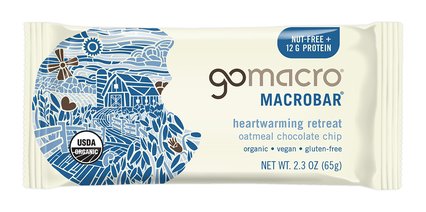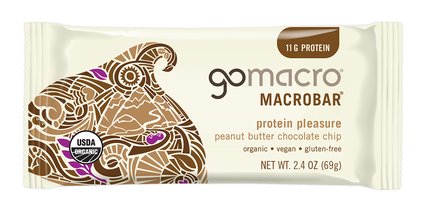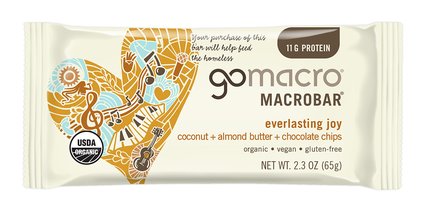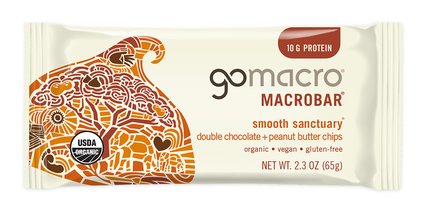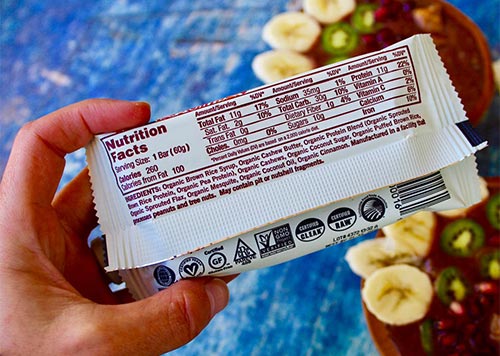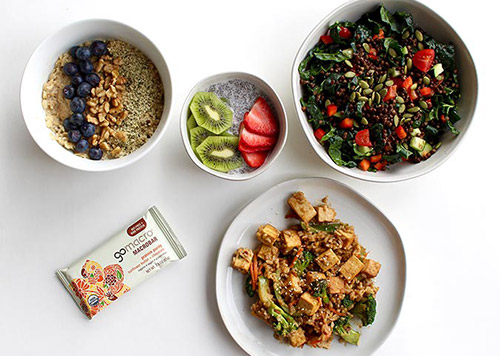How to Improve Gut Health
What to Eat and Avoid for a Healthier Gut
Our gastrointestinal system is vast and mysterious. Around 100 trillion bacteria, both good and bad, live inside our digestive system. Keeping this complex system in good shape is essential. By following a proper diet, avoiding certain foods, and leading an active lifestyle, you can sustain good gut health!

What Is Gut Health?
Gut health refers to the balance of microorganisms that live in our digestive tract. These bacteria, yeasts, and viruses are also called “the gut microbiome” or “gut flora”. Many microbes are beneficial for human health, and some are even essential. Others can be harmful, especially when they multiply.
Why Is Gut Health Important?
Proper gut health and maintaining the right balance of microorganisms is vital for physical and mental health, and immunity. Gut flora helps break down food and turns nutrients into resources your body can use. Not only do these microbes help in maintaining proper digestion, but studies indicate that the balance of bacteria in the microbiome may affect your emotions and the way the brain processes sense information like sight, sound, texture, or flavor.
What Are Some Digestive Problems?
Talking about digestive problems can be somewhat embarrassing, but it is a crucial step toward proper gut health. Here are a few common gut issues:
1. Gastroesophageal Reflux Disease
Symptoms of reflux, such as heartburn, are among the most common digestive ills. Heartburn typically involves a hot or burning sensation rising up from the abdomen and into the chest area under the sternum. This occurs when stomach acid backs up into the esophagus, often occurring after meals at night.
2. Gallstones
Gallstones are hard deposits formed in the gallbladder, a small, pear-shaped sack that stores and secretes bile for digestion. Gallstones form when there is too much waste in your bile, or if your gallbladder doesn’t empty properly. When these deposits block the duct leading to your intestines, they can cause sharp pain in the upper-right abdomen.
3. Crohn’s Disease
Crohn’s Disease is part of a group of digestive conditions called inflammatory bowel disease. Crohn’s most commonly affects the terminal ileum, which connects the end of the small intestine and the beginning of the colon. As many as 78,000 Americans are affected by Crohn’s Disease, with symptoms ranging from abdominal pain to severe diarrhea.
4. IBS
Irritable bowel syndrome affects an estimated 10 to 15 percent of people worldwide. Signs of IBS can vary widely, but common symptoms include constipation, diarrhea, and bloating. What causes IBS isn’t known, but treatment of these symptoms centers largely on diet, such as eating low-fat, high-fiber meals or avoiding common trigger foods (dairy products, caffeine and artificial sweeteners).
5. Celiac Disease
Celiac Disease is a serious sensitivity to gluten, which is a protein found in wheat, rye, and barley. Eat gluten, and your immune system goes on the attack, damaging your villi, the finger-like protrusions in your small intestines that help you absorb food nutrients. Symptoms of this disease include abdominal pain, bloating, diarrhea, constipation, and weight loss.
6. Lactose Intolerance
Between 30 and 50 million Americans are lactose intolerant, meaning they lack an enzyme needed to digest the main sugar in dairy products. Ranging in severity from person to person, symptoms include cramping, bloating, gas, nausea, and diarrhea.
What Foods Are Hard To Digest?
Now that we’ve identified a few common digestive problems, here are some foods to avoid:
Fried Foods – These foods are high in fat and can cause stomach discomfort and diarrhea.
Artificial Sweeteners – Sugar substitutes are very hard for the gut to digest. Only 15% gets absorbed in the body, and the remainder ferments in the stomach, causing abdominal pain and cramping.
Dairy Products – Milk, ice cream, or cheese can trigger diarrhea, bloating, or gas, which may indicate lactose intolerance.
Beans – They’re loaded with fiber and protein, but they also have some hard-to-digest sugars that our enzymes can’t break down, causing discomfort, gas, and cramping. Eating Beans is good, but don’t overdo it.
Fructose – Foods sweetened with fructose, like sodas, candy, and fruit juice, are near impossible for the gut to digest. This is why we use Brown Rice Syrup in our MacroBars - because there’s no fructose!
Spicy Foods – Spicy foods contain a compound called capsaicin, which slows the rate of digestion. This causes food to sit in the stomach longer, leading to intense heartburn.
Cruciferous vegetables – Foods like broccoli and cabbage are high in fiber, but may be hard to break down. To help digestion, cook these foods instead of eating them raw.
What Foods Are Good For The Digestive System?
Eat more of these foods and fortify your gut health:
Apples – Apples are a rich source of pectin, which helps increase stool volume and eases inflammation of the colon.
Papaya – This fruit contains a digestive enzyme called papain, which contributes to the healthy break down of proteins.
Ginger – Ginger is a traditional ingredient in Eastern medicine. It accelerates gastric emptying and reduces the risk of heartburn, and stomach discomfort.
Sauerkraut – Sauerkraut is rich in probiotics and contains enzymes that break down nutrients into more easily digestible molecules.
Beets – Beetroot, otherwise known as beets, is a great source of fiber. Beets bypasses digestion and heads to the colon, where it feeds healthy gut bacteria and adds bulk to stool.
Fennel – Fennel, a plant with a pale bulb and long green stalks, is used to add flavor to food. Its fiber content helps prevent constipation and moves regularity into the digestive tract.
Chia Seeds – This is an excellent source of fiber, promoting the growth of probiotics in your gut to keep you regular.
Tempeh – Tempeh is made from fermented soybeans. Fermentation breaks down sugars through bacteria and yeast, improving digestion and absorption of nutrients.
Ways to Improve Gut Health
1. Try A Low FODMAP Diet
FODMAP stands for Fermentable oligosaccharides, disaccharides, monosaccharides and polyols. FODMAPs are a collection of short-chain carbohydrates, or sugars, that aren’t absorbed properly in the gut, triggering symptoms of IBS.
FODMAP friendly snacks include carrots, eggplant, cucumbers, green beans, oranges, strawberries, and grapefruit.
2. Exercise
Regular, light exercise has so many health benefits, but one of the more interesting perks is that physical activity can improve your gut bacteria. Yoga, light resistance training, or a nice walk can increase certain microbes in the gastrointestinal tract to aid bowel movements and help reduce the risk of inflammatory diseases.
3. Try Kombucha
Kombucha has been around for thousands of years, first brewed in China. The basic ingredients in kombucha are yeast, sugar, and black tea. This mix is set aside for a week as acids form in the drink. Kombucha is believed to be good for digestion and helps rid the body of toxins. Kombucha is not a magic “cure all” elixir, but when enjoyed in moderation can provide gut healthy benefits.
4. No Need To Avoid Coffee
Debating whether to have that second cup of coffee? Research indicates that moderate caffeine consumption can lead to a healthy gut microbiome, and that coffee drinkers were generally healthier than those who consumed little to no coffee.
5. Seek Probiotic Supplements
Your digestive system is made up of trillions of good and bad bacteria. Probiotics help keep this delicate system running smoothly by supporting the good bacteria. Certain supplements and fermented foods like kimchi and sauerkraut are good probiotic sources. It’s recommended to take probiotics 20-30 minutes before mealtime.
6. Consume Healthy Prebiotic Foods
Prebiotics feed and nourish the friendly bacteria in the gut and boost immunity. They are naturally found in foods like bananas, garlic, asparagus, and in supplemental fibers like chicory root. Though there isn’t a common recommended time to take prebiotics, it’s probably best to take them two hours before or after any other medication.
7. Know What To Eat When On Antibiotics
Antibiotics can have an adverse effect on your gut. Antibiotics kill all bacteria in the stomach, disrupting the delicate ecosystem and creating a state of dysbiosis – or bacterial imbalance. When the number of good bacteria in your gut falls, it leads to the overgrowth of organisms, like yeast, to occur. This can damage the lining of the intestinal wall.
Go With Your Gut
The digestive tract is quite complex. Where trillions of microorganisms converge to keep digestion in good working order. So keep it simple: eat right, avoid certain foods, and stay active. This will help keep your gut health moving in the right direction.
